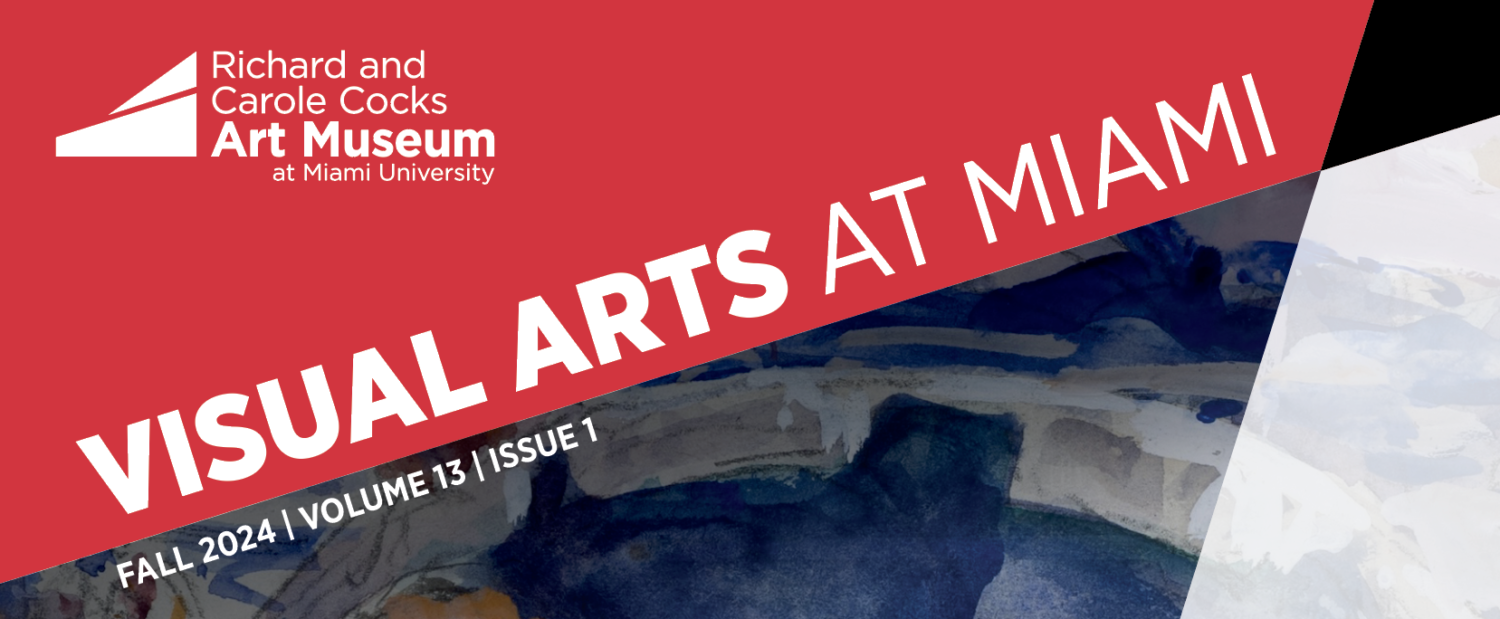
FROM THE COLLECTION
LAURA STEWART, COLLECTIONS MANAGER/ REGISTRAR
Today, virtual reality allows for personal encounters with “places” and “things” you’ve never seen before, but for many, many years, museums have been offering similar types of experiences.

Sepik River Region, Papua, New Guinea
Wood with pigment
Gift of Beatrice Cummings Mayer
1991.55
For example, last semester, students in Dr. Jordan Fenton’s ART 162 class got up-close and personal with African, Native American and Oceanic objects from the Art Museum’s collection. After visiting the Global Perspectives exhibition—which features items produced by cultural groups from various geographic locations, such as the continent of Africa, Papua New Guinea, and the southwestern United States—students learned more about these cultures from in-class lectures and reading assignments.
ART 162 students not only observed objects on display at MUAM, they got a behind-the-scenes look at the storage facilities and selected a collection object to research for a museum catalogue entry. They made individual appointments to view their selection and to study it in great detail, at which time they reviewed information from MUAM’s object files. Most students took multiple smartphone photographs in anticipation of making a presentation outlining their observations and research discoveries to their classmates.
Through this project, many freshmen were not only exposed to the rich cultural resources Miami University has to offer, they also encountered things made by people of African, Native American and Oceanic cultures. Many of the objects studied came from places most of us will never have the chance to visit. And yet, through analysis, research, and better understanding of the uses and purposes of things now located in a museum, Professor Fenton’s students were able to “reflect on their learning experiences and apply the knowledge gained in appreciating their own culture.”
Museums provide society with opportunities such as these: they bring peoples, places, things and thoughts of the world—created throughout the course of history—closer to home.

Zuni Pueblo
Turquoise, coral and silver
Gift of Edna M. Kelly
2006.554
For more information about developing class projects around MUAM collections, visit the Art Museum’s faculty pages via MiamiOh.edu/Art-Museum.
